Membes iframe test
Diversity and Inclusion Policy
In line with the Society's values and principles the Council, in January 2020, adopted its initial Diversity and Inclusion Policy. This policy is considered by Council annually, and has been updated most recently in January 2021, with progress being reported to both Council and the membership.
Commitment
The Royal Society of New South Wales (RSNSW, the Society) is an inclusive learned institution that encompasses a diverse group of people who individually and collectively are dedicated to ideas that matter. It draws together people whose knowledge and experience span a wide range of backgrounds, experiences and disciplines, creates a focus for sharing and applying expertise, and delivers an independent and authoritative voice.
The Society values liberal democracy, respects religious, political, and cultural freedoms, and promotes non-discriminatory, evidence-based discourse and the free exchange of ideas. The Society recognises that it will be a more effective public intellectual voice by comprehensively embracing diversity and inclusion in all of its activities.
The Society’s Council is responsible for leading diversity and inclusion policies and actions in the Society. In doing so, it:
- ensures that its internal governance and committee structures reflect the diversity and inclusive practices that it seeks to promote;
- recognises its significant role in increasing opportunities for women as they pursue careers in their chosen fields;
- embraces individual differences and contributions to our collective success and social engagement;
- develops, monitors, and reports on performance indicators relating to diversity and inclusion.
Current Policy
The current Diversity and Inclusion Policy (January 2021), approved by Council on 17 March 2021 is accessible online.
Royal Society of NSW Awards for 2020
The Council of the Royal Society of New South Wales is pleased to announce its Awards for 2020 at the 1289th Ordinary General Meeting, held online on the evening of 9 Decermber 2020.
These include the Cook Medal, which is the Society’s highest honour, awards for research and scholarly excellence, and awards which recognise substantial service to the Society.
The award winners are listed below, together with links to information about the awards and their recipients.
The Cook Medal
James Cook Medal — Scientia Professor Richard Bryant AC
Awards for Research Excellence
Clarke Medal and Lecture — Distinguished Professor Michelle Leishman
Edgeworth David Medal — Associate Professor Brett Hallam
History and Philosophy of Science Medal — Professor Alison Bashford FRSN
Liversidge Lecture — Professor Richard Payne FRSN
Poggendorff Lectureship — Professor Angela Moles FRSN
Jak Kelly Award — Mr Matthew Donnelly
Royal Society of NSW Scholarships — Mr Sajad Razavi Bazaz, Mr Daniel Fox, and Ms Phillipa Specker
Awards for Service to the Society
Royal Society of NSW Medal — Emerita Professor Mary O’Kane AC FRSN
Royal Society of NSW Citation — Emeritus Professor Heinrich Hora FRSN
James Cook Medal
Scientia Professor Richard Bryant AC FASSA FAA FAHMS
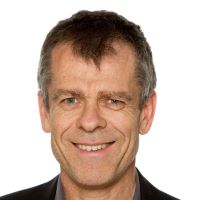 The James Cook Medal, the Society’s highest honour, is awarded from time to time for outstanding contributions to both science and human welfare, in and for the Southern Hemisphere.
The James Cook Medal, the Society’s highest honour, is awarded from time to time for outstanding contributions to both science and human welfare, in and for the Southern Hemisphere.
Professor Richard Bryant, of the School of Psychology of UNSW (Sydney), has made many seminal advances in the diagnosis, treatment, and identification of neural, genetic, and cognitive markers of post-traumatic psychopathology. His work has challenged the pre-existing notions of acute psychological response to trauma leading to major policy and practice shifts internationally in relation to how trauma survivors are managed. Professor Bryant has translated his findings into improving the mental health of communities throughout the Southern Hemisphere (as well as many trauma-affected countries in the northern hemisphere).
Awards For Research Excellence
Clarke Medal and Lecture (Botany)
Distinguished Professor Michelle Leishman
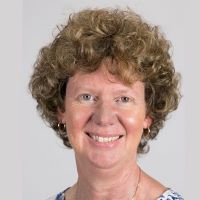 The Clarke Medal is awarded each year for distinguished research in the natural sciences, conducted in Australia and its territories, in the fields of botany, zoology, and geology (considered in rotation). For 2020, the medal has been awarded in botany.
The Clarke Medal is awarded each year for distinguished research in the natural sciences, conducted in Australia and its territories, in the fields of botany, zoology, and geology (considered in rotation). For 2020, the medal has been awarded in botany.
Distinguished Professor Michelle Leishman, of the Department of Biological Sciences of Macquarie University, is internationally recognised for her work in plant ecology. In particular, her studies are directed towards understanding the success of invasive plant pathogens, vegetation responses and adaptation to climate change, plant conservation, and facilitating resilient urban green spaces. She has a number of active research programs which include development of a database for greening urban space, studying invasive plants and pathogens and climate vegetation response and adaptation to global climate change.
Edgeworth David Medal
Associate Professor Brett Hallam
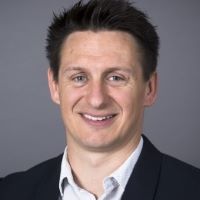 The Edgeworth David Medal is awarded annually for distinguished research by a young scientist under the age of 35 years for work undertaken mainly in Australia or contributing to the advancement of Australian science.
The Edgeworth David Medal is awarded annually for distinguished research by a young scientist under the age of 35 years for work undertaken mainly in Australia or contributing to the advancement of Australian science.
In less than six years from completion of his PhD, Scientia Fellow Brett Hallam of the School of Photovoltaic and Renewable Energy Engineering at UNSW (Sydney) has established himself as a national and international leader in the highly competitive field of crystalline silicon photovoltaics, particularly in the areas of light induced degradation, hydrogen passivation and defect engineering. Although he has made a major impact on photovoltaics globally, this is in addition to his profile and leadership in crystalline silicon photovoltaics in Australia. Professor Hallam’s research addresses one of the key challenges in sustainability, that is, access to clean electricity. His work on hydrogen passivation to avoid light induced degradation of solar cells means that the cost of photovoltaics can be reduced greatly, increasing the competitiveness of this form of electricity compared with that generated by fossil fuels.
History and Philosophy of Science Medal
Professor Alison Bashford FRSN FAHA FBA FRHistS
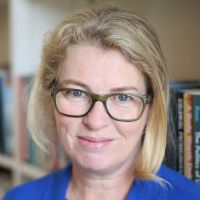 The Society’s History and Philosophy of Science Medal is awarded annually to recognise outstanding achievement in the History and Philosophy of Science, especially the study of ideas, institutions, and individuals of significance to the practice of the natural sciences in Australia.
The Society’s History and Philosophy of Science Medal is awarded annually to recognise outstanding achievement in the History and Philosophy of Science, especially the study of ideas, institutions, and individuals of significance to the practice of the natural sciences in Australia.
Professor Alison Bashford, an ARC Laureate Fellow from the Faculty of Arts and Social Sciences at UNSW (Sydney), is one of Australia's most eminent historians, recognised internationally for her ground-breaking and transformative historical studies of the biomedical and environmental sciences. Her scholarly distinction is recognised by fellowships of both Australian and British academies. Professor Bashford has greatly enlarged and raised our understanding of past conceptions of race, population and place in Australia and the world. She has brought the history of the human and environmental sciences into the scope of world history. She has written five acclaimed books and numerous other published works in which she reveals connections of science and medicine with national projects and global ambitions. Further, her extensive and various studies have reoriented the history of science toward the southern hemisphere and the Pacific, showing us how natural knowledge has been assembled in Australia and the region.
Liversidge Lecture
Professor Richard Payne FRSN FRACI FRSC
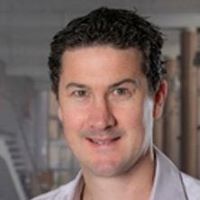 The Liversidge Lecture is awarded at intervals of two years for the purpose of encouragement of research in Chemistry. It was established under the terms of a bequest to the Society by Professor Archibald Liversidge MA LLD FRS, who was Professor of Chemistry in the University of Sydney from 1874 to 1907, and who was one of the Council members who sponsored the Society's Act of Incorporation in 1881.
The Liversidge Lecture is awarded at intervals of two years for the purpose of encouragement of research in Chemistry. It was established under the terms of a bequest to the Society by Professor Archibald Liversidge MA LLD FRS, who was Professor of Chemistry in the University of Sydney from 1874 to 1907, and who was one of the Council members who sponsored the Society's Act of Incorporation in 1881.
The research of Professor Richard Payne, of the School of Chemistry of the University of Sydney, focusses on the development of technologies for the chemical synthesis of therapeutic peptides and proteins. These technologies have facilitated the preparation of numerous proteins bearing modifications that enhance activity and stability, critical features in the quest to develop efficacious protein therapeutics. His approaches have also been combined with recombinant methods to generate large therapeutic proteins and even antibodies—methods that have been widely adopted in the laboratories of international academics and pharmaceutical companies alike. He has developed synthetic proteins that are amongst the most potent antithrombotic agents ever reported, and which have an enormous therapeutic potential for thrombo- embolic disorders. Professor Payne has been awarded numerous prizes and medals including the 2014 RSNSW Edgeworth David Medal and the H G Smith and A J Birch Medals of the RACI.
Poggendorff Lectureship
Professor Angela Moles FRSN
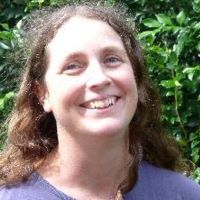 The Poggendorf Lecture is awarded periodically for research in plant biology and more broadly agriculture.
The Poggendorf Lecture is awarded periodically for research in plant biology and more broadly agriculture.
Professor Angela Moles, of the School of Biological, Earth and Environmental Sciences of UNSW (Sydney), is an international leader in the field of large-scale evolutionary ecology. In particular she studies the processes that shape global patterns and the way plants grow reproduce and interact with animals. She has a highly cited publication record and the innovation and quality of her work has been recognised by numerous awards.
Jak Kelly Award
Mr Matthew Donnelly
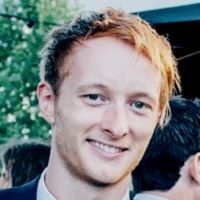 The Jak Kelly Award was created in honour of Professor Jak Kelly (1928–2012), who was Head of Physics at University of NSW from 1985 to 1989, was made an Honorary Professor of University of Sydney in 2004, and was President of the Royal Society of NSW in 2005 and 2006. Its purpose is to encourage excellence in postgraduate research in physics. The award is supported by the Royal Society of NSW and the Australian Institute of Physics, NSW branch. The winner is selected from a short list of candidates who made presentations at the most recent Australian Institute of Physics, NSW branch postgraduate awards meeting.
The Jak Kelly Award was created in honour of Professor Jak Kelly (1928–2012), who was Head of Physics at University of NSW from 1985 to 1989, was made an Honorary Professor of University of Sydney in 2004, and was President of the Royal Society of NSW in 2005 and 2006. Its purpose is to encourage excellence in postgraduate research in physics. The award is supported by the Royal Society of NSW and the Australian Institute of Physics, NSW branch. The winner is selected from a short list of candidates who made presentations at the most recent Australian Institute of Physics, NSW branch postgraduate awards meeting.
Mr Matthew Donnelly, a PhD Candidate at UNSW (Sydney), is researching monolithic donor structures in silicon and their application in spin-based quantum computing. In particular, he is focussed on using 3D fabrication techniques to precisely control tunnel rates and other parameters critical to the operation of spin qubits.
Royal Society of New South Wales Scholarships
The Royal Society Scholarships, valued at $500, together with a complimentary year of Associate Membership of the Society, are awarded annually in order to acknowledge outstanding achievements by young researchers in any field of science. Applicants must be enrolled as research students in a university in either NSW or the ACT on 1 January in their year of nomination.
For 2020, three RSNSW Scholarships have been awarded to:
- Mr Sajad Razavi Bazaz — University of Technology Sydney
- Mr Daniel Fox — Australian National University
- Ms Phillipa Specker — UNSW (Sydney)
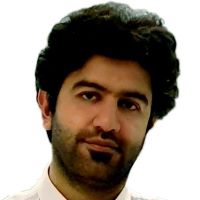 In his PhD, Mr Sajad Razavi Bazaz studies the use of 3D printing for microfluidics. Microfluidics is a science which allows the manipulation of fluid samples, typically in the range of microlitres, within networks of channels ranging from tens to hundreds of micrometres. Microfluidic systems are becoming increasingly promising tools for the advancement of chemical and biological research with evident benefits. Today, 3D printing technologies have gained significant traction, being dubbed a third industrial revolution. Due to the expanding use of microfluidic systems in laboratories, 3D printing has emerged as an alternative method to traditional costly fabrication processes. Mr Razavi Bazaz has developed a new method for the fabrication of microfluidic devices and has validated it. He and his colleagues have established a start-up company to develop 3D printed microfluidic devices for selective sperm selection for the IVF market.
In his PhD, Mr Sajad Razavi Bazaz studies the use of 3D printing for microfluidics. Microfluidics is a science which allows the manipulation of fluid samples, typically in the range of microlitres, within networks of channels ranging from tens to hundreds of micrometres. Microfluidic systems are becoming increasingly promising tools for the advancement of chemical and biological research with evident benefits. Today, 3D printing technologies have gained significant traction, being dubbed a third industrial revolution. Due to the expanding use of microfluidic systems in laboratories, 3D printing has emerged as an alternative method to traditional costly fabrication processes. Mr Razavi Bazaz has developed a new method for the fabrication of microfluidic devices and has validated it. He and his colleagues have established a start-up company to develop 3D printed microfluidic devices for selective sperm selection for the IVF market.
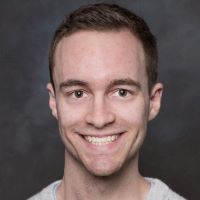 Mr Daniel Fox is studying the clinically important, but much neglected, human and foodborne pathogen, B Cereus, and has discovered that enterotoxins produced by this bacterium can activate cytosolic innate immune inflammasome sensors which mediate host defence against pathogens. The sensing of pathogens by inflammasome sensor proteins results in the assembly of the inflammasome complex. Mr Fox has identified a toxin NHE as a novel activator of the NLRP3 inflammasome because it triggers formation of a lytic pore that promotes the efflux of potassium ions. He has also found it mediates the killing of cells from multiple lineages and hosts. It acts synergistically with another toxin secreted by the same organism, HBL.
Mr Daniel Fox is studying the clinically important, but much neglected, human and foodborne pathogen, B Cereus, and has discovered that enterotoxins produced by this bacterium can activate cytosolic innate immune inflammasome sensors which mediate host defence against pathogens. The sensing of pathogens by inflammasome sensor proteins results in the assembly of the inflammasome complex. Mr Fox has identified a toxin NHE as a novel activator of the NLRP3 inflammasome because it triggers formation of a lytic pore that promotes the efflux of potassium ions. He has also found it mediates the killing of cells from multiple lineages and hosts. It acts synergistically with another toxin secreted by the same organism, HBL.
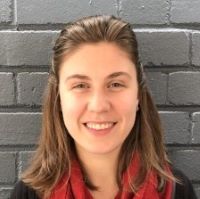 Ms Phillipa Specker is investigating the role of emotional regulation in the management of post-traumatic stress disorder (PTSD) in refugees. Refugees represent one of the largest at-risk groups in the development of PTSD, with current treatments being much less efficacious compared to other trauma-exposed groups. Research suggests that emotion regulating strategies that refugees used to manage stress may be critically important in their recovery from PTSD. In the first part of her PhD program, she found that there were individual differences in the types of emotion regulation strategies that refugees used to manage stress and that those refugees who were better able to concurrently use cognitive reappraisal and emotional suppression had fewer PTSD symptoms. Currently, she is testing a novel experimental paradigm to investigate whether providing refugees with adaptive emotion regulation skills training will reduce PTSD symptomology and ultimately improve well-being.
Ms Phillipa Specker is investigating the role of emotional regulation in the management of post-traumatic stress disorder (PTSD) in refugees. Refugees represent one of the largest at-risk groups in the development of PTSD, with current treatments being much less efficacious compared to other trauma-exposed groups. Research suggests that emotion regulating strategies that refugees used to manage stress may be critically important in their recovery from PTSD. In the first part of her PhD program, she found that there were individual differences in the types of emotion regulation strategies that refugees used to manage stress and that those refugees who were better able to concurrently use cognitive reappraisal and emotional suppression had fewer PTSD symptoms. Currently, she is testing a novel experimental paradigm to investigate whether providing refugees with adaptive emotion regulation skills training will reduce PTSD symptomology and ultimately improve well-being.
Awards for Service to the Society
Royal Society of NSW Medal
Emerita Professor Mary O’Kane AC FRSN FTSE Hon FIEAust
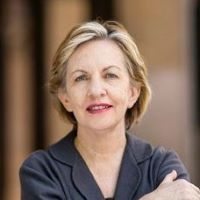 The Society’s Medal is awarded from time to time to a member of the Society who has made meritorious contributions to the Society’s administration, organisation, and endeavours.
The Society’s Medal is awarded from time to time to a member of the Society who has made meritorious contributions to the Society’s administration, organisation, and endeavours.
Emerita Professor Mary O’Kane was appointed as the first New South Wales Chief Scientist and Engineer in 2008 and remained in the position until 2018. Prior to that she was Vice-Chancellor and President of the University of Adelaide from 1996 to 2001. From 1994 to 1996 she was Deputy Vice-Chancellor (Research) and Professor of Electrical Engineering at the University of Adelaide. From 1989 to 1993 she was Dean of the Faculty of Information Sciences and Engineering at the University of Canberra.
Early on, as the New South Wales Chief Scientist and Engineer, she established a relationship between her office and the Royal Society of New South Wales which, in essence, provided the Society with access to the State Government. She was a strong supporter of the Society, providing funding for the publication of the Journal and Proceedings. Later she provided funding and hosted the Four Societies Lecture when it was the Royal Society's turn to organise this event. She also instigated an awards mechanism for the Society, by which the Science Deans of NSW and ACT universities came together under her chairmanship to make recommendations for the Society’s prizes and scholarships. She advocated for the Society in government and also was a strong supporter of the Royal Society of New South Wales and Four Academies Forum held annually at Government House, Sydney.
Royal Society of NSW Citation
Emeritus Professor Heinrich Hora FRSN FAIP FInstP
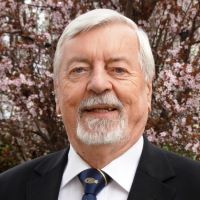 The Royal Society of NSW Citations are awarded to a Member or Fellow of the Society who has made significant contributions to the Society, but who has not been recognised in any other way. A maximum of three Citations may be awarded in any one year.
The Royal Society of NSW Citations are awarded to a Member or Fellow of the Society who has made significant contributions to the Society, but who has not been recognised in any other way. A maximum of three Citations may be awarded in any one year.
Emeritus Professor Heinrich Hora, of the UNSW (Sydney), has served the Royal Society of New South Wales with distinction over many years. Professor Hora is a former Vice-President and Councillor of the Society and is a current member of the Fellows and Members Assessment Committee, to which he has made significant contributions over several years. In that role, he has helped ensure that the most talented and qualified individuals across many fields join the ranks of the Fellowship of the Society. In addition to his extensive service to the Society, Professor Hora is a noted theoretical physicist who has made and continues to make significant contributions to solid state physics, the optical properties of plasma, and non-linear dynamics with the application of lasers to the production of nuclear fusion energy.
RSNSW Meeting Calendar
This page provides online access to the Society’s calendar of meetings and events for use by the Council, its Committees and Office-bearers of the Society. The Calendar is maintained by the Secretary of the Society to whom This email address is being protected from spambots. You need JavaScript enabled to view it. should be addressed.
After COVID-19: Creating the Best of Times from the Worst of Times (5 November 2020)
Royal Society of NSW and Four Academies Forum
Contents
- Report on the Forum — Dr Susan Pond AM FRSN FTSE (Chair, Program Committee)
- Forum Program — including links to the YouTube videos of the presentations
- Gallery of Images
Forum Report
Prepared by Dr Susan Pond AM FRSN FTSE (Chair, Forum Program Committee)
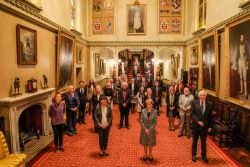 Once again, the Royal Society of NSW joined forces with the Academy of Social Sciences of Australia, the Australian Academy of the Humanities, the Australian Academy of Science and the Australian Academy of Technology and Engineering to stage this Annual Forum.
Once again, the Royal Society of NSW joined forces with the Academy of Social Sciences of Australia, the Australian Academy of the Humanities, the Australian Academy of Science and the Australian Academy of Technology and Engineering to stage this Annual Forum.
We gathered as a depleted live audience of thirty people in Government House, Sydney, under the shadow of the COVID-19 pandemic. A larger audience tuned in to the live-streamed video broadcast. The USA was dominating the news because the Presidential election results remained too close to call and its daily number of COVID-19 cases exceeded 100,000 for the first time.
When choosing the theme — “After COVID-19: Creating the Best of Times from the Worst of Times” — in early March, we did not have a clear line of sight to the scale of the pandemic and how and when it would end.
Australia at that time was still focussed on the massive bushfires which killed more than 30 people, more than one billion animals and forced thousands of people to flee for their lives. But we knew about the emergence of the novel coronavirus SARS-CoV-2, its spread to nearly every country and the accelerating disruption of society by the rising number of patients manifesting the disease caused by this virus, COVID-19.
Charles Dicken’s opening sentence in the Tale of Two Cities “It was the best of times, it was the worst of times …” was germane to the Forum’s theme. Our goal was to examine how the COVID-19 pandemic could drive wide ranging reforms towards a more resilient, self-sufficient and prosperous Australia.
Hosted by the Society’s Vice Regal Patron, Her Excellency the Honourable Margaret Beazley AC QC, Governor of NSW, in person guests represented the Royal Society of NSW, the four Learned Academies, the Office of the NSW Chief Scientist and Engineer, and the NSW Smart Sensing Network. We were joined by four undergraduate students from different faculties - science, business, health and humanities - in surrounding universities.
After giving the Acknowledgement of Country, Emeritus Professor Ian Sloan AO FAA FRSN, President of the Society, welcomed all speakers and guests and introduced the Governor. In her speech, Her Excellency reflected on how this period “offers us the chance to press the re-set button; to make this a time of re-calibration and reinvention; to think how we can ‘build back better… To do this, we will need to draw on the strength, the ingenuity and the creativity of each sector of our community.”
It was my role to introduce Professor Eric Knight FRSN, Executive Dean and Professor of Strategic Management at Macquarie University, who graciously accepted the challenge of being the Moderator and Rapporteur for the day.
As the Keynote Speaker, Dr Peter Hobbins cleverly used the word “immunity” in several senses as he reviewed the history of previous crises in the context of the 1800s and early 1900s in Sydney and NSW. Citing case studies of pandemics, snake bites and aircraft accidents, he asked what we learned that was useful, or did not learn but could have been useful, from our collective responses to crises in days when technology was crude compared to today.
In Session I, “Forging a Resilient Future for Australia’s Youth”, Distinguished Professor Genevieve Bell AO FTSE reflected on the key characteristics of this “COVID moment. She noted that Australian society remains unsettled since the November 2019 bushfires and that we are still in a liminal time, a time between times, during which everything is being changed, moved, and restructured. Our lives are destabilized but our responses, including our use of technologies, extraordinary. We should take advantage of the space that the pandemic has created to imagine and build a different and better future.
The second speaker in this Session, Dr Jordan Nguyen, an engineer, inventor, entrepreneur with a strong media presence, regaled us with stories about the magic being brought to us by new technologies, especially for the disabled through the use of robotics and bionic technologies. He pointed out that we do not program fear of failure into robots and challenged us with unorthodox ideas such as making digital copies of our loved ones so that we could speak to them after they die.
Session II on “Sweeping Changes to Australia’s Healthcare System” wrought by the pandemic brought Dr Teresa Anderson AM to the stage. Changes include the reduction of non-urgent services, rapid expansion of tele-health and online meetings, and workforce surge plans often involving staff from unconventional sources (e.g. Qantas). The specific responses necessary to manage the pandemic - screening, testing, tracing, special accommodation for quarantine and COVID-19 patients, and care for vulnerable communities - added to the complexity but spurred incredible innovation that Dr Anderson was able to portray based on her front-line experiences.
After reviewing the virology and epidemiology of SARS-Cov-2, Scientia Professor Gregory Dore drew out the major lessons learned from such times, noting that COVID-19 “holds a mirror” to public health systems and finds any weaknesses. Australia’s public health system has reflected its strengths in contrast to the failures so visible in many other countries. He warned that we should not depend on antiviral agents because the virus is only present in the blood stream for a few days, mostly before symptoms become evident. “Prevention is King and Queen of pandemic control”.
Session III focused on the devastating impact of COVID-19 on Australia’s Culture and Creative Industries but brought an inspiring message from each of the speakers. Distinguished Professor Larissa Behrendt AO FASSA reviewed the early and effective responses of Australia’s indigenous communities to the pandemic, and the headroom it created for their artists and communities to flourish. She is confident that the film industry in Australia is in a better position than in many other countries to start production again as the pandemic wanes.
Ms Bethwyn Serow reminded us that the performing arts are a core part of our humanity and that their value is immeasurable beyond the money they generate. It was the first sector to experience the full force of physical distancing measures and will be the last to recover. In hard numbers, cultural and creative activity in Australia accounts for at least 6% of gross domestic product and 200,000 jobs. The pandemic-related rapid and continuing loss of talent must be reversed.
Session IV on Reshaping Australia’s Institutions brought together three authoritative panelists, Professor Julianne Schultz AM FAHA, Dr Martin Parkinson AC PSM FASSA and Professor Anne Tiernan in a conversation format. They systematically probed the findings of the “COVID-19 X-Ray” of how effectively Australia’s public sector institutions have served our citizens, the economy and society during the pandemic. Regarding the economy, they noted gaps in the fiscal stimulus policies that must close, gaps such as attitudes towards diversity and higher education and measures to ensure that stimulus investments yield productive activity in-country.
Our moderator and rapporteur, Professor Eric Knight FRSN, brought the forum to a close with an astute summation of the day’s sessions. He reflected on the question of how we can build back better by piecing together the building blocks of community, State and individual for both society and self.
This Forum begins the conversation about the challenges facing Australia at this critical juncture and the opportunities to re-think our future. The Royal Society of NSW looks forward to engaging with you well into the future on these and similar issues of importance to the Australian public.
Acknowledgements: The Royal Society of NSW and the Four Learned Academies acknowledge the generous support of Her Excellency the Honourable Margaret Beazley AC QC, Governor of New South Wales, the NSW Government Office of the Chief Scientist and Engineer, and the New South Wales Smart Sensing Network.
Forum Program
| Opening: Welcome from the Royal Society of NSW and Four Learned Academies |
|
| Welcome and Acknowledgement of Country Ian Sloan AO FRSN FAA President, Royal Society of NSW |
|
| Official Opening Her Excellency the Honourable Margaret Beazley AC QC Governor of New South Wales |
|
| Introduction to the Moderator and Rapporteur Susan Pond AM FRSN FTSE Chair, Forum Program Committee |
|
| Moderator and Rapporteur Eric Knight FRSN Executive Dean, Macquarie Business School |
|
| Keynote Address |
|
| Immunity from history: what can we learn from collective responses to crises Peter Hobbins Principal Historian, Artefact Heritage Services |
|
| Session I: Forging a resilient future for Australia’s youth |
|
| The new normal? Living in the liminal and what comes next? Genevieve Bell AO FTSE Distinguished Professor and Director, 3A Institute, The Australian National University, and Senior Fellow, Intel |
|
| Emerging generations and evolving intersections between technology and humanity Jordan Nguyen Founder & CEO, Psykinetic |
|
| Session I Q&A: Forging a resilient future for Australia's youth Genevieve Bell and Jordan Nguyen with Moderator Eric Knight |
|
| Session II: Sweeping changes to Australia’s healthcare system |
|
| COVID-19: Transforming the way we provide health care Teresa Anderson AM Chief Executive, Sydney Local Health District, NSW Health |
|
| The Australian COVID-19 public health response: Lessons and future directions Gregory Dore Scientia Professor and Head, Viral Hepatitis Clinical Research Program, Kirby Institute, UNSW Sydney |
|
| Session II Q&A: Sweeping changes to Australia’s healthcare system Teresa Anderson and Gregory Dore with Moderator Eric Knight |
|
| Session III: Australia’s culture and creative industries |
|
| The weaving power of Indigenous storytelling Larissa Behrendt AO FASSA Distinguished Professor, University of Technology Sydney |
|
| For what it’s worth: performing arts value lost and found during COVID-19 Bethwyn Serow Arts and Policy Strategist |
|
| Session III Q&A: Australia’s culture and creative industries Larissa Behrendt and Bethwyn Serow with Moderator Eric Knight |
|
| Session IV: Reshaping Australia’s Institutions |
|
| Is the COVID moment a time for reform? Martin Parkinson AC PSM FASSA — Chancellor, Macquarie University and Anne Tiernan — Dean (Engagement), Griffith Business School, Griffith University in conversation with Julianne Schultz AM FAHA — Professor, Media and Culture, Griffith University; Chair, The Conversation |
|
| Rapporteur Session Eric Knight FRSN Executive Dean, Macquarie Business School, Macquarie University |
|
Gallery of Images
A gallery of images from the Forum, taken at Government House on 5 November 2020, is available for inspection and downloading from out SharePoint Gallery site.

